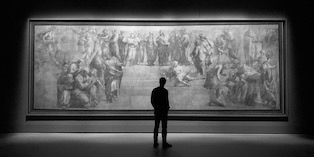Podcast Profile: History and Philosophy of the Language Sciences
 Site • RSS • Apple Podcasts
Site • RSS • Apple Podcasts56 episodes
2019 to 2026
Median: 26 minutes
Collection: Philosophy

 Site • RSS • Apple Podcasts
Site • RSS • Apple PodcastsDescription (podcaster-provided):
History and Philosophy of the Language Sciences explores the history of the study of language in its varied social and cultural contexts.Themes and summary (AI-generated based on podcaster-provided show and episode descriptions):
➤ history of linguistics and language science • key thinkers and schools (Pāṇini, Saussure, Boas, Bloomfield, Chomsky) • structuralism, generativism, typology • sociopolitics, ideology, nationalism • documentation, archiving, language contact and revivalThis podcast examines how ideas about language have been developed, debated, and put to work in particular historical settings. Across the episodes, the focus is less on teaching linguistic concepts in the abstract than on tracing the intellectual lineages behind them: who proposed influential approaches to grammar, meaning, sound structure, and language change, and how those approaches were shaped by wider philosophical, political, and institutional forces.
A recurring theme is the formation of “schools” and traditions in linguistics and related disciplines. Listeners encounter accounts of major movements such as historical-comparative research, neogrammarian approaches and their critics, structuralism in its various European forms, and the emergence of generative grammar and subsequent controversies in American linguistics. The podcast also pays attention to how particular frameworks took on doctrinal form—such as distributional methods, typological comparison, and theories of universals—and how later scholars revised or contested them.
Another throughline is the relationship between linguistic theory and its surrounding context. Episodes connect scholarship to developments in psychology and philosophy (including behaviorism, logical positivism, pragmatism, and semiotics), to social scientific traditions like ethnomethodology and conversation analysis, and to cultural and political environments ranging from nationalism and state ideologies to academic networks and citation practices. Several conversations explicitly examine intersections of linguistics with politics, including questions of ideology and the social consequences of scientific agendas.
The podcast also broadens the history of language study beyond canonical European and American settings by engaging with ancient grammatical traditions and with the documentation, description, and archiving of languages, including work on North American and Australian languages. Alongside historical reconstruction, it highlights contemporary concerns that grow out of that history, such as language contact, creole studies, community perspectives on mixed and revitalized languages, and efforts to reclaim and revive languages. Interviews with prominent scholars frequently use career trajectories, books, and research programs as entry points into these larger historical and philosophical questions.